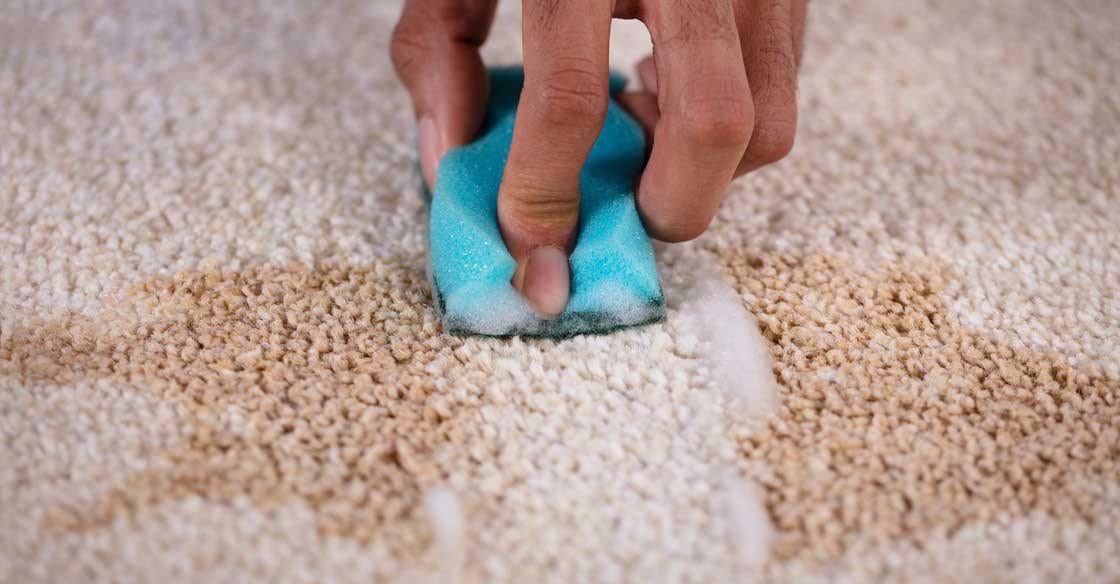Cleaning 'Hacks' that Actually Make Things Worse
When it comes to cleaning there are tried and tested hacks you can rely on to make sure your house is spotless.
However, according to Good Housekeeping Institute there are some widely known household hints that are actually causing more harm than good.
While some hacks can make cleaning easier, the experts say you can’t believe everything you have heard will work – like using salt to lift red wine, immediately pouring water on carpet stains, or using vinegar as a makeshift cleaning product.
Here we have revealed which of the well-known hacks could make your clean-up job harder, not easier…
Don’t pour water on carpet stains: It may seem like logic to use water to mop up a spill, but there’s a danger that adding more liquid can over saturate a stain.
The excess water could cause long-lasting damage – soaking through the carpet fibres and into floorboards.
Good Housekeeping says that patience is key and advises gently blotting out as much of the stain as possible, then follow with a “light spritz of sparkling or soda water to rinse followed by more blotting”.
A clean dry cloth or paper towel is all that’s needed, and to make sure the stain doesn’t remain use a special removal cleaner.
Forget reaching for the salt for a red wine stain: There’s nothing worse than red wine splashing on your plush carpets – but don’t go reaching for the salt to try and soak it up.
Salt can lift the colour out of the carpet, but the consumer experts say that it can actually ‘set the stain’ because of the abrasive nature of the substance.
There’s also a risk that salt grains can stick in the carpet and become a dirt magnet for everything else.
Using vinegar as an all-purpose solution: While vinegar is regularly counted as an all-natural cleaner and can tackle grease and mould, the kitchen cupboard staple does contain acid and is abrasive.
The acid can affect wood and natural stone, so Good Housekeeping suggests keeping it away from marble counter tops or tiles.
Keep window cleaner away from your computer: The ingredients in a regular window cleaner can permanently damage a computer screen if used to shift marks.
According to the consumer site the ammonia and alcohol mixture used to remove stubborn stains on a window can actually strip anti-reflective coatings off screens, as well as cause clouding.
It advises using a microfibre cloth with a specialist LCD or plasma screen cleaner with no alcohol.

What word sums up 2024, neighbours?
If 2020 was the year of lockdowns, banana bread, and WFH (work from home)....
In one word, how would you define 2024?
We're excited to see what you come up with!

⚠️ DOGS DIE IN HOT CARS. If you love them, don't leave them. ⚠️
It's a message we share time and time again, and this year, we're calling on you to help us spread that message further.
Did you know that calls to SPCA about dogs left inside hot cars made up a whopping 11% of all welfare calls last summer? This is a completely preventable issue, and one which is causing hundreds of dogs (often loved pets) to suffer.
Here are some quick facts to share with the dog owners in your life:
👉 The temperature inside a car can heat to over 50°C in less than 15 minutes.
👉 Parking in the shade and cracking windows does little to help on a warm day. Dogs rely on panting to keep cool, which they can't do in a hot car.
👉 This puts dogs at a high risk of heatstroke - a serious condition for dogs, with a mortality rate between 39%-50%.
👉 It is an offence under the Animal Welfare Act to leave a dog in a hot vehicle if they are showing signs of heat stress. You can be fined, and prosecuted.
SPCA has created downloadable resources to help you spread the message even further. Posters, a flyer, and a social media tile can be downloaded from our website here: www.spca.nz...
We encourage you to use these - and ask your local businesses to display the posters if they can. Flyers can be kept in your car and handed out as needed.
This is a community problem, and one we cannot solve alone. Help us to prevent more tragedies this summer by sharing this post.
On behalf of the animals - thank you ❤️








 Loading…
Loading…


















